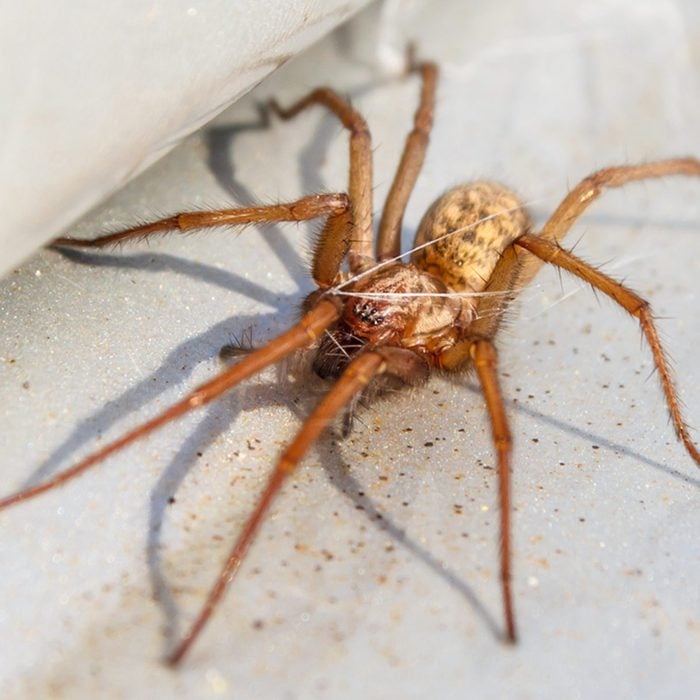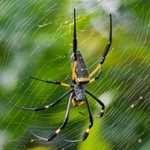Best Ways to Get Rid of Spiders

Spiders are beneficial in the garden, but you may not appreciate them moving into your home. Learn how to get rid of those eight-legged interlopers.
Our editors and experts handpick every product we feature. We may earn a commission from your purchases.
Worldwide there are about 45,000 species of spiders (a.k.a. arachnids). Although there are several types known to deliver venomous bites, including black widow, brown recluse and hobo, the majority of spiders you’re likely to encounter in North America are a nuisance rather than a danger.
The truth is, spiders do more good than harm. They provide a useful service by catching and eating unwanted household pests including flies, cockroaches, fleas, moths and mosquitoes. Some even eat other spiders.
Regardless, many people have a natural fear of spiders and would rather not see them inside their homes.
We get it.
With a little patience, some effort and the right tactics, here’s how you can effectively keep spiders out.
On This Page
How Do Spiders Get Into the House?
Like most tiny crawling creatures, spiders can enter your home through small cracks, gaps, air vents, around pipes and other voids in buildings and structures. Don’t forget about the most obvious entry points: open doors and windows. They can also hitch rides on firewood and plants.
What Attracts Spiders?
Where insects dare to tread, so do spiders.
Seeking prey, escaping hot or cold weather conditions and searching for mating opportunities are the main reasons spiders come indoors.
How to Prevent Spiders
Spiders are natural predators that help control bug and insect populations in and around house and garden. Still, a lot of us would prefer they not cross our thresholds.
Ed Spicer of Pest Strategies recommends the following ways to try and spider-proof your home.
Essential Oils
Spiders avoid certain smells, so using essential oils derived from plants like peppermint, lavender, tea tree and eucalyptus really work! You can also make a mixture of vinegar and water to spray at entry points — spike it with one of the essential oils listed above for extra protection.
Chrysanthemums
Plant in the garden, in beds around your home’s exterior or in pots indoors. Mums contain pyrethrins, a naturally occurring pesticide that proves quite good at repelling spiders and cockroaches too.
Exclusion
Spiders are shy, so they prefer to shelter and spin their webs in sheds, garages, basements, window frames, corners of ceilings, around fixtures and other undisturbed areas. Sealing gaps, cracks and thresholds, plus replacing torn screens and weatherstripping, can go a long way in keeping spiders at bay.
Cleanliness
Staying on top of your vacuuming, dusting and decluttering chores will reduce the number of flies and other insects available for spiders to eat. In other words: No prey. No cobwebs. No stay.
Residual Pesticides
Look to residual pesticide sprays to create an insecticidal barrier around your home. Spray the exterior of windows, doors, porches and patio coverings, and along eaves. Inside, apply along baseboards and in closets and garages. These products are designed to keep new spiders from invading your home for 90 days to 12 months.
Note: Many pesticides are toxic, so keep them away from pets and children.
How to Get Rid of Spiders
From humane to hardball, here are a few ways of getting rid of spiders in your home. Note that most spider species prefer to shelter alone, so one-off removal is actually an effective method for keeping them under control, as long as you catch them before they lay eggs.
- Capture and release outdoors;
- Catch in sticky traps;
- Apply web remover or use a cobweb duster;
- Create a barrier with a residual pesticide;
- Kill on sight.
Do You Need an Exterminator for Spiders?
Most DIY options prove to be effective in avoiding spider infestations. However, if you should happen upon some spider egg sacks or are worried that your spider problem is too much for you to handle, it may be time to consult with a professional spider exterminator.
Remember that acting quickly, before eggs have a chance to hatch, is paramount in eradicating and preventing future invasions.



